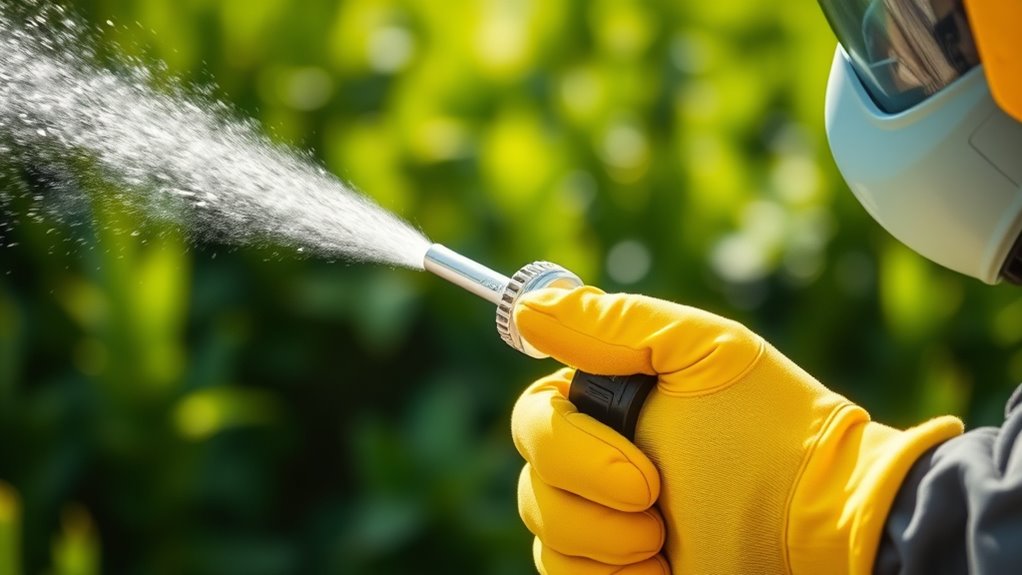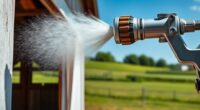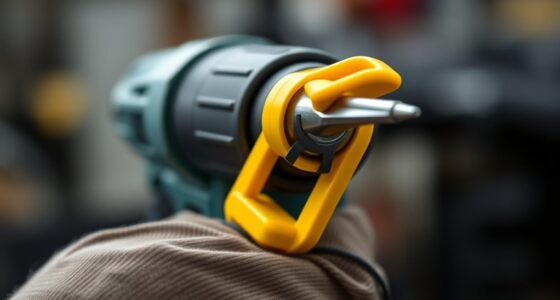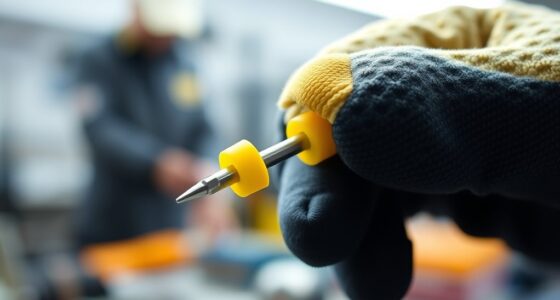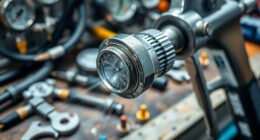To avoid dangerous injection injuries, always follow safety protocols when handling high-pressure sprayers. Wear proper PPE, inspect your equipment regularly for leaks or damage, and keep pressure within safe limits. Never bypass safety valves or point the spray at yourself or others. Stay alert to equipment malfunctions and be aware of high-pressure dangers. If you want to learn key safety tips and how to protect yourself, keep going to guarantee you’re fully informed.
Key Takeaways
- Always wear appropriate PPE to protect against high-pressure injection injuries during operation and maintenance.
- Regularly inspect equipment for leaks, damage, or wear to prevent accidental pressure releases.
- Follow manufacturer instructions carefully to ensure safe handling and proper pressure regulation.
- Be aware of emergency procedures and how to safely depressurize equipment after use.
- Stay informed through reputable safety training and online resources about high-pressure hazards and prevention.
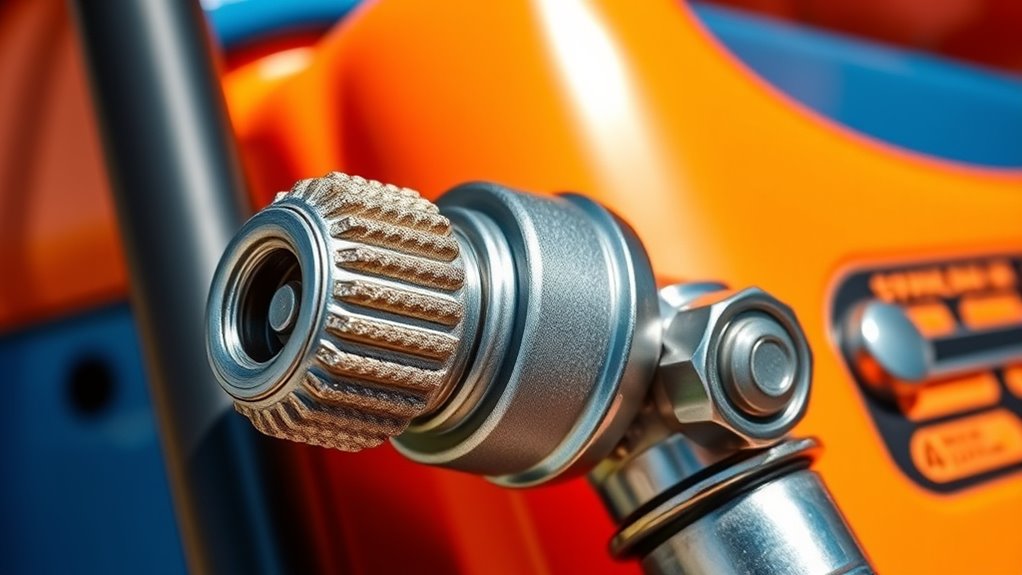
Sprayer safety is crucial to prevent serious accidents and injuries that can occur from high-pressure systems. Understanding how to operate and maintain sprayers properly ensures safe usage and minimizes risks. Regular training and adherence to safety protocols are essential components of responsible spraying practices. It is also important to be aware of affiliate disclosure and privacy policies that may impact your browsing experience when researching safety information online.
Frequently Asked Questions
How Often Should I Inspect My Sprayer for Leaks?
You should inspect your sprayer for leaks before each use and regularly throughout the day. Look for any signs of damage or wear, such as cracks or loose fittings, especially after each use or if you notice inconsistent spray patterns. Promptly fix or replace any damaged parts to prevent accidental injections. Regular inspections guarantee safe operation, keeping you protected from high-pressure hazards and maintaining the sprayer’s efficiency.
What PPE Is Essential for High-Pressure Spraying?
You absolutely need to wear eye protection, gloves, long sleeves, and a mask or respirator. High-pressure spraying can turn a tiny leak into a disaster faster than you can blink—think of it like a firehose of chemical danger aimed right at you. Don’t underestimate the power of proper PPE; it’s your shield against sprays, splashes, and accidental injections. Suit up every time, and stay safe from high-pressure hazards!
Can I Repair a Damaged Pressure Hose Myself?
You shouldn’t repair a damaged pressure hose yourself. High-pressure hoses require specialized tools and expertise to guarantee safety and proper functioning. Attempting repairs can lead to leaks or bursts, risking serious injury. Instead, replace the hose with a manufacturer-approved part or contact a professional for repairs. Always prioritize safety—never compromise by trying to fix high-pressure equipment unless you’re trained and equipped to do so.
What Are the Signs of a Failing Pressure Relief Valve?
You’ll notice a failing pressure relief valve if it’s constantly releasing pressure, even when you’re not using the sprayer. You might also hear hissing sounds or see leaks around the valve. If the valve doesn’t release pressure when it’s supposed to, the pressure can build up dangerously, risking injury. Regularly inspect the valve for corrosion, damage, or sticking parts, and replace it if you see any signs of failure.
How Should I Store My Sprayer to Prevent Accidents?
Ever wondered how to keep your sprayer safe? Store it in a cool, dry place away from direct sunlight and extreme temperatures. Always relieve pressure and disconnect the hose before storing. Keep it upright and secure to prevent accidental spills or damage. Do you really want to risk leaks or accidental injections? Proper storage not only prolongs your sprayer’s life but also keeps you safe from unexpected accidents.
Conclusion
Remember, prioritizing safety isn’t just about following rules—it’s about understanding the risks of high-pressure sprayers. Many believe that simply wearing protective gear is enough, but studies show that proper maintenance and awareness are equally essential. By treating every sprayer as potentially dangerous and respecting pressure limits, you reduce accidents. So, don’t assume safety is automatic; stay vigilant, stay informed, and always handle sprayers with the respect they deserve to prevent serious injuries.
